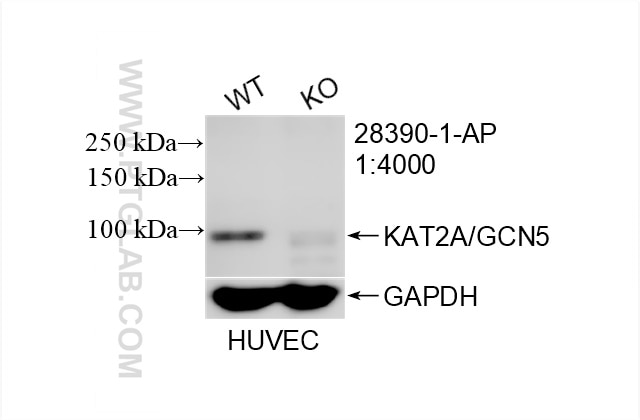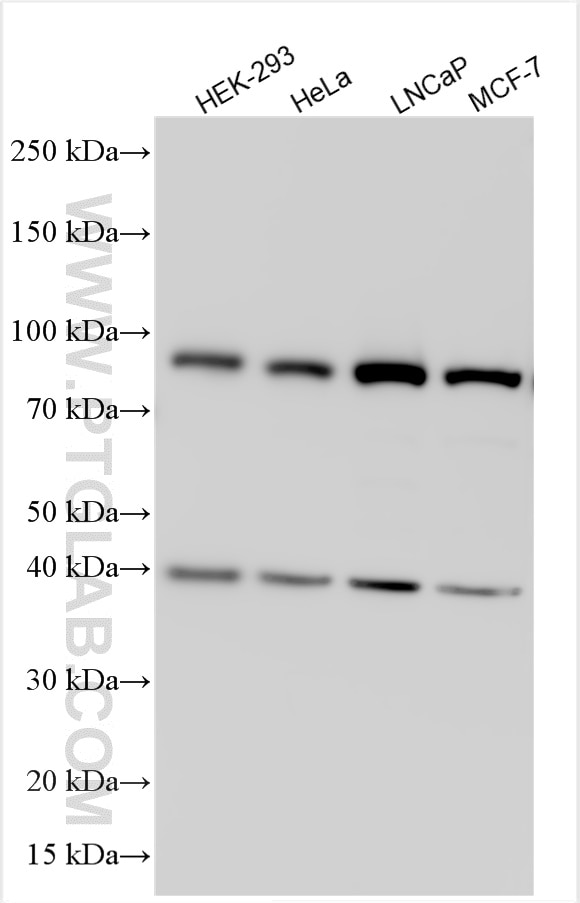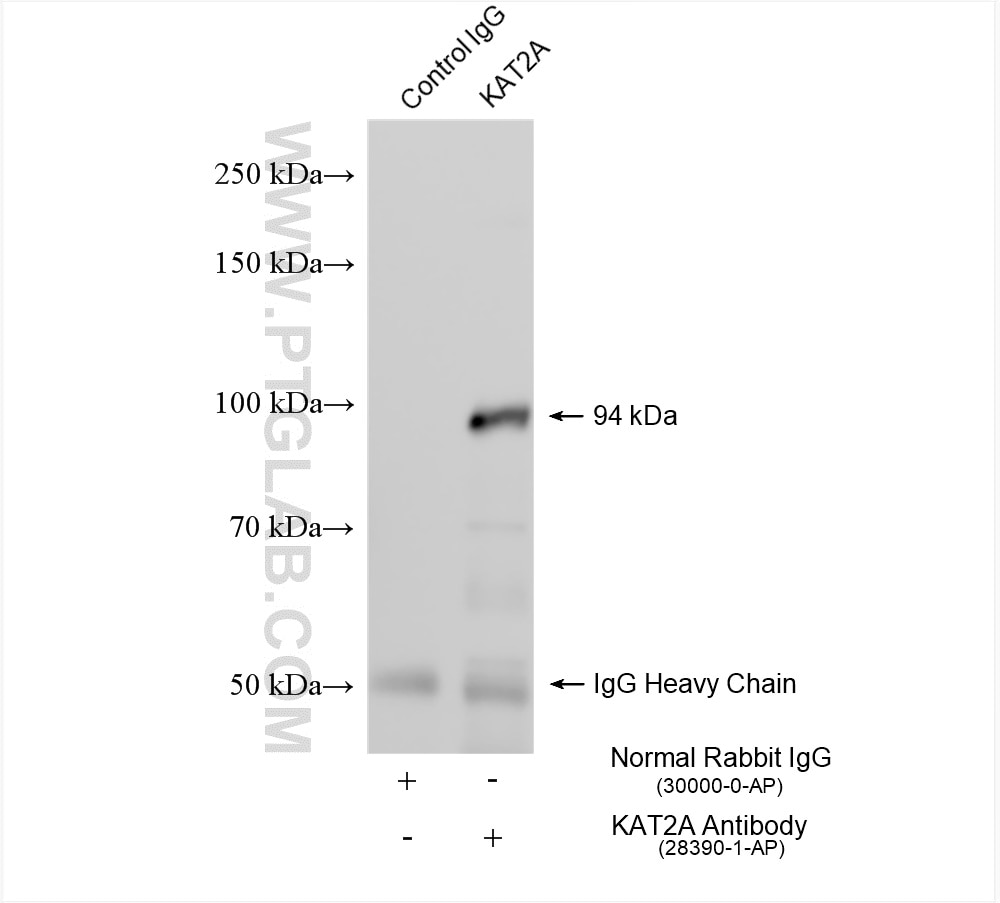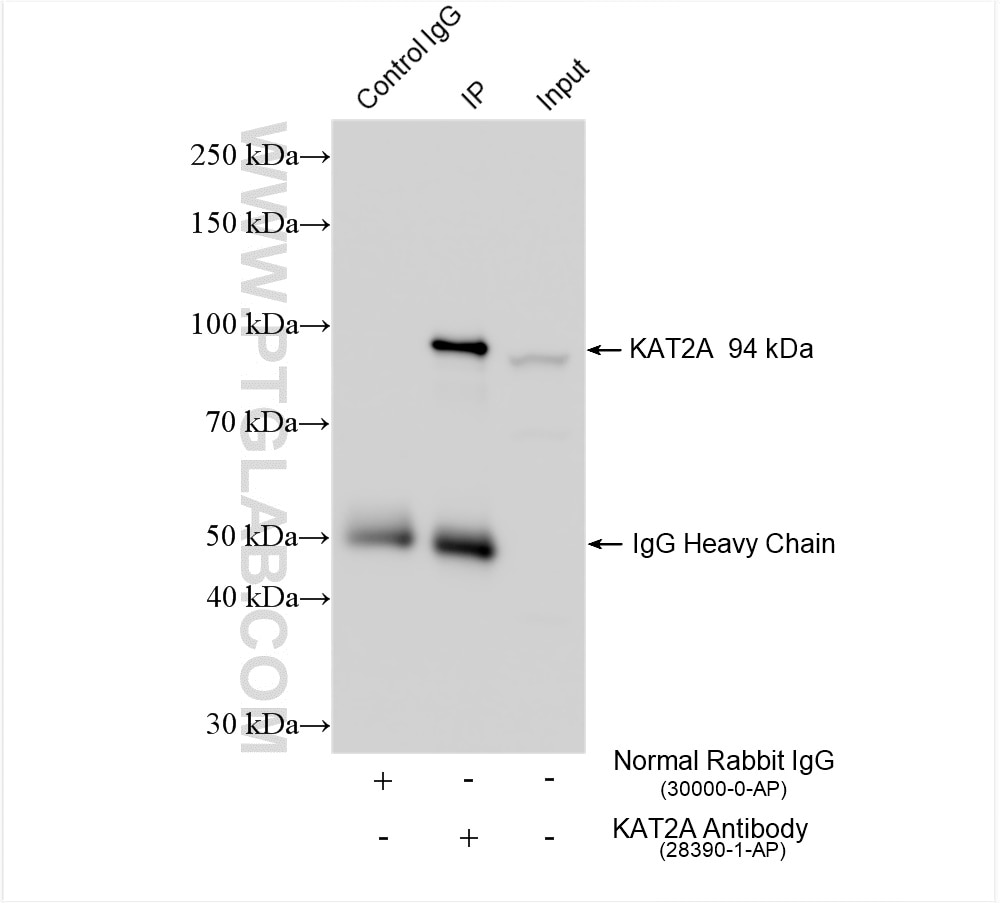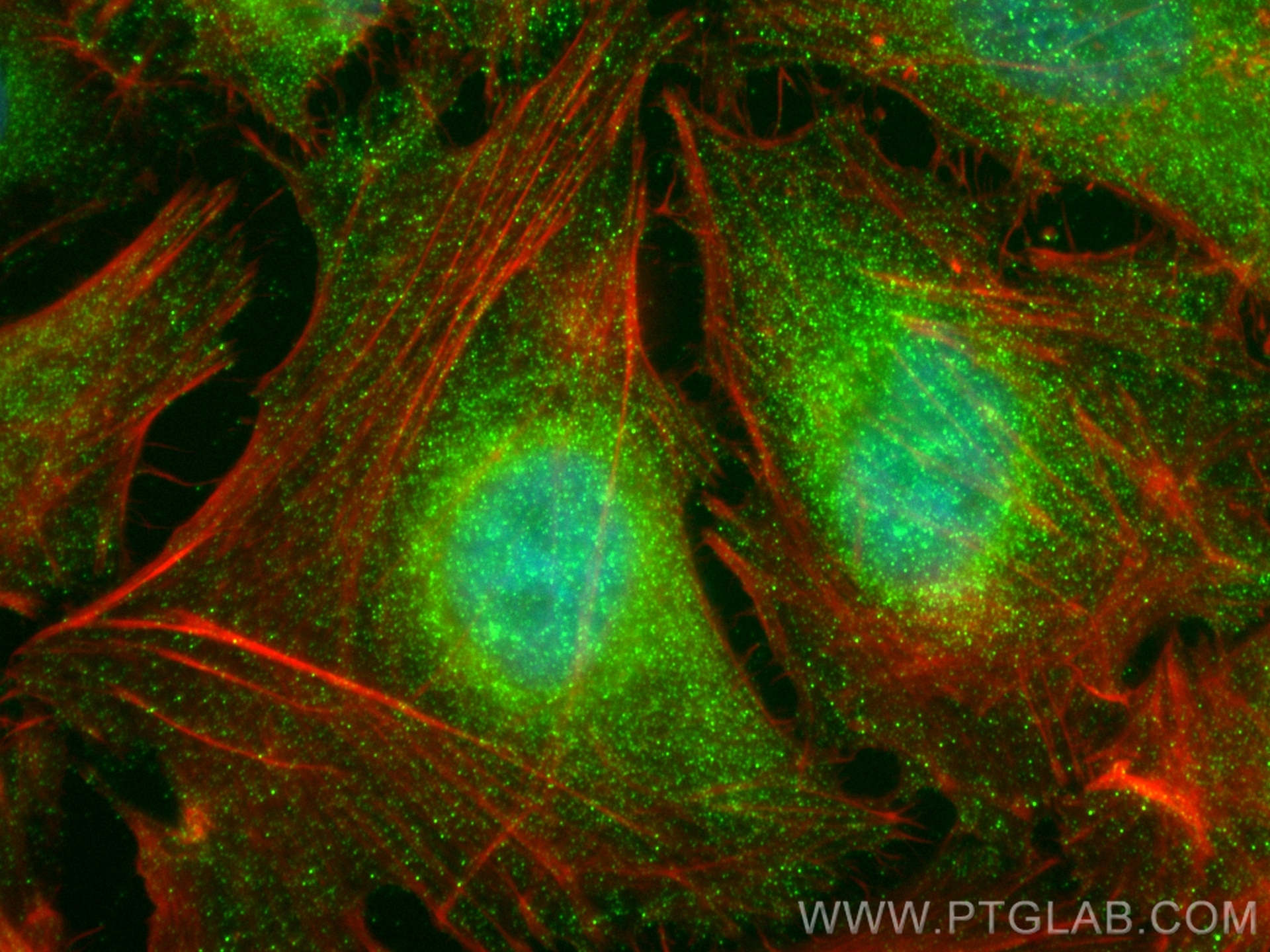Tested Applications
| Positive WB detected in | HEK-293 cells, HUVEC cells, HeLa cells, LNCaP cells, MCF-7 cells |
| Positive IP detected in | LNCaP cells, hTERT-RPE1 cells |
| Positive IF/ICC detected in | HeLa cells |
Recommended dilution
| Application | Dilution |
|---|---|
| Western Blot (WB) | WB : 1:2000-1:16000 |
| Immunoprecipitation (IP) | IP : 0.5-4.0 ug for 1.0-3.0 mg of total protein lysate |
| Immunofluorescence (IF)/ICC | IF/ICC : 1:50-1:500 |
| It is recommended that this reagent should be titrated in each testing system to obtain optimal results. | |
| Sample-dependent, Check data in validation data gallery. | |
Product Information
28390-1-AP targets KAT2A/GCN5 in WB, IF/ICC, IP, ELISA applications and shows reactivity with human samples.
| Tested Reactivity | human |
| Host / Isotype | Rabbit / IgG |
| Class | Polyclonal |
| Type | Antibody |
| Immunogen | KAT2A/GCN5 fusion protein Ag29005 Predict reactive species |
| Full Name | K(lysine) acetyltransferase 2A |
| Calculated Molecular Weight | 94 kDa |
| Observed Molecular Weight | 94 kDa |
| GenBank Accession Number | BC032743 |
| Gene Symbol | KAT2A |
| Gene ID (NCBI) | 2648 |
| RRID | AB_3669658 |
| Conjugate | Unconjugated |
| Form | Liquid |
| Purification Method | Antigen affinity purification |
| UNIPROT ID | Q92830 |
| Storage Buffer | PBS with 0.02% sodium azide and 50% glycerol pH 7.3. |
| Storage Conditions | Store at -20°C. Stable for one year after shipment. Aliquoting is unnecessary for -20oC storage. 20ul sizes contain 0.1% BSA. |
Background Information
GCN5, encoded by KAT2A, is a member of nuclear A-type histone acetyltransferase (HAT) which has direct impact on gene transcription. Additionally, GCN5 has roles in cell cycle regulation, DNA replication, and DNA repair, highlighting it as key player in the maintenance of genome stability. GCN5 is a coactivator of c-MYC oncogene protein and has oncogenic roles in various cancers.
Protocols
| Product Specific Protocols | |
|---|---|
| WB protocol for KAT2A/GCN5 antibody 28390-1-AP | Download protocol |
| IF protocol for KAT2A/GCN5 antibody 28390-1-AP | Download protocol |
| IP protocol for KAT2A/GCN5 antibody 28390-1-AP | Download protocol |
| Standard Protocols | |
|---|---|
| Click here to view our Standard Protocols |
